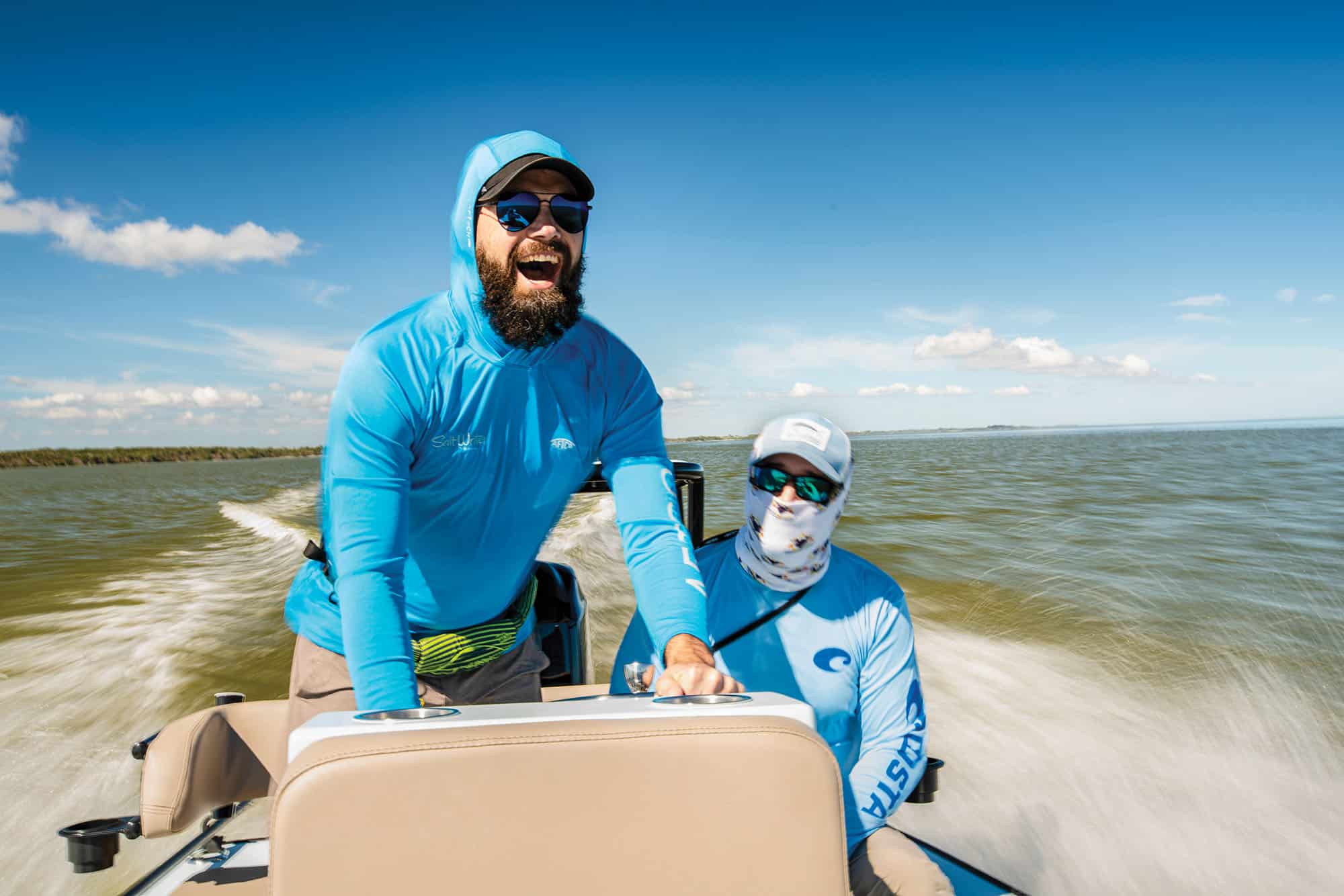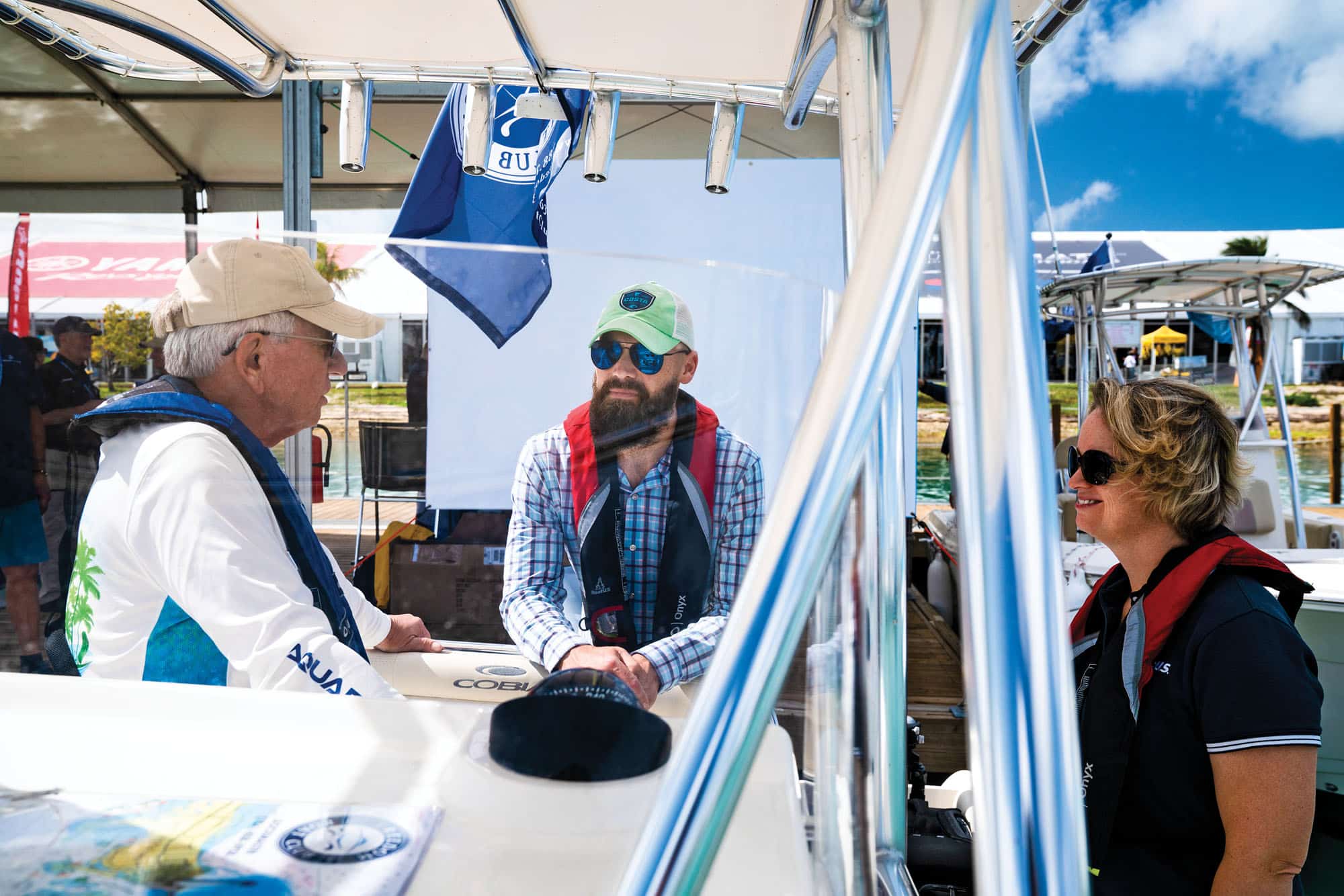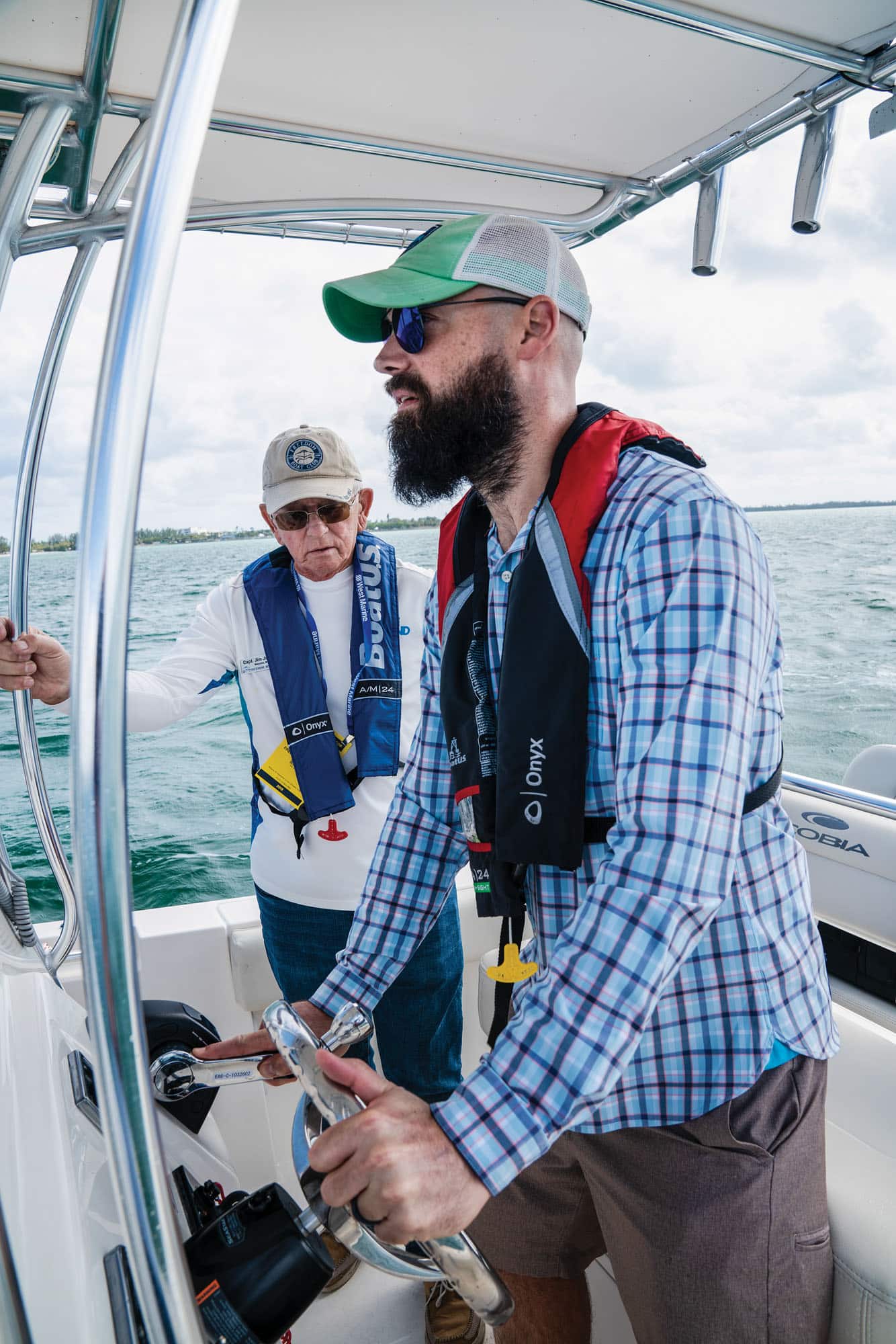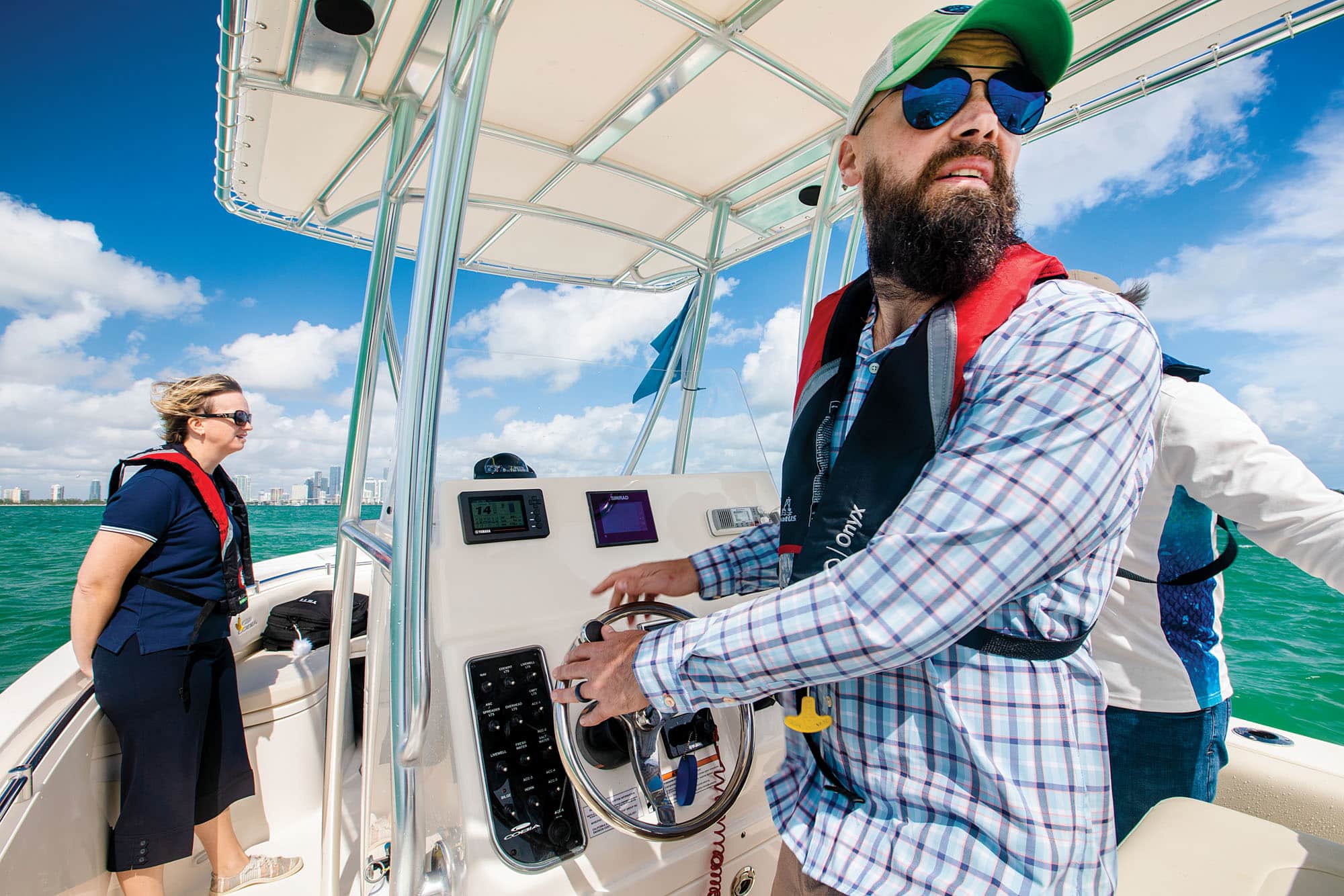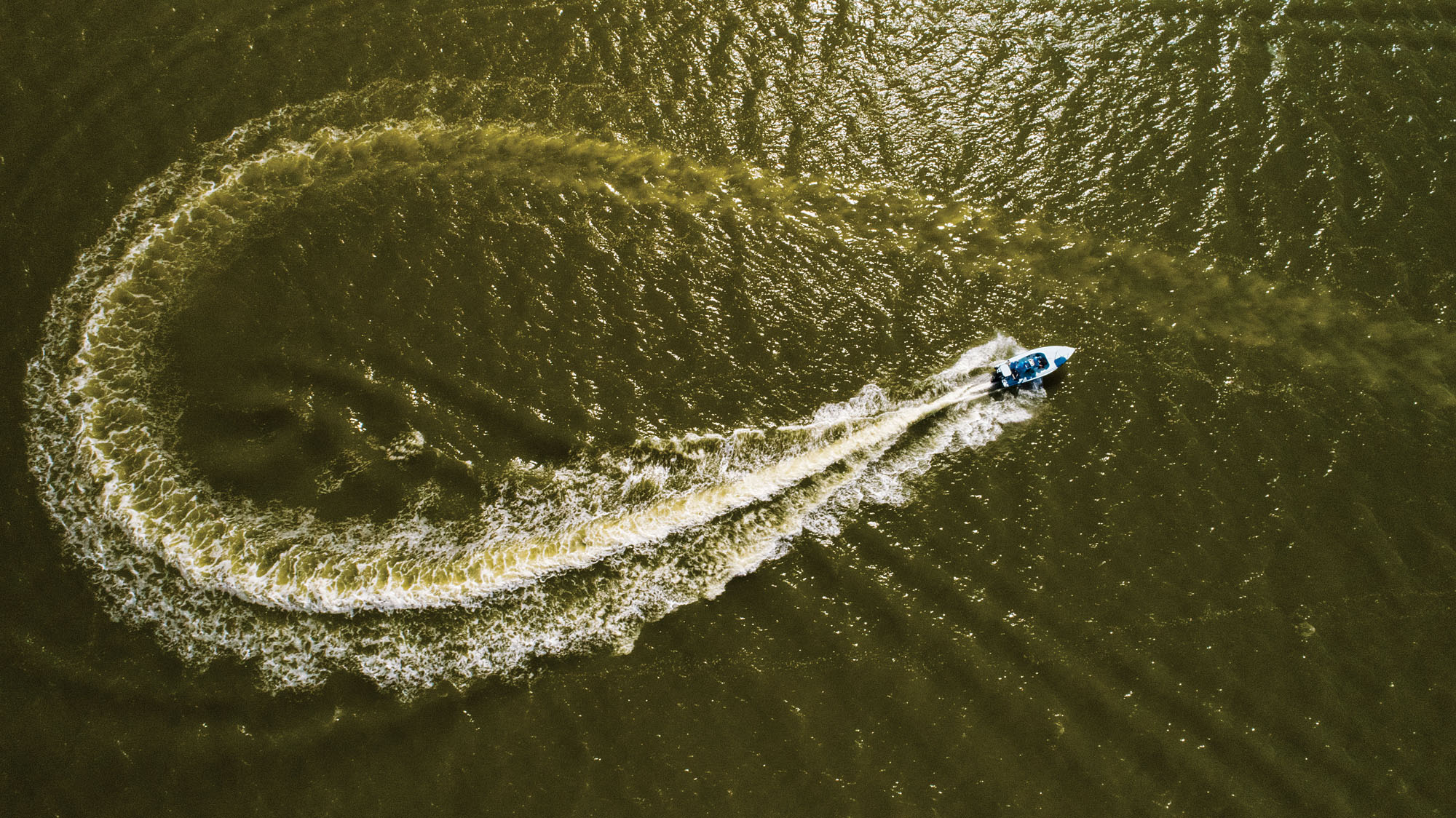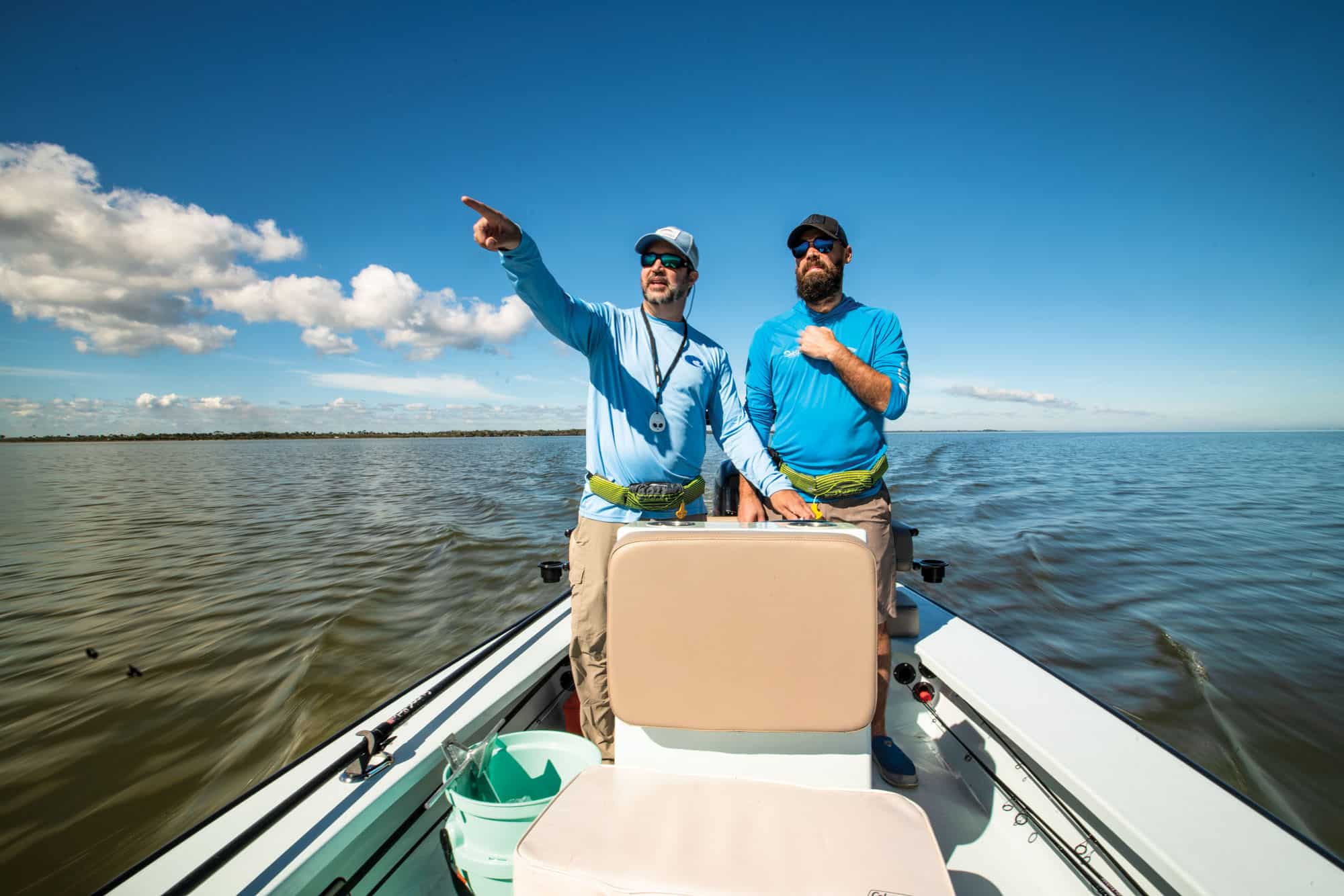How to Learn to be a Boater
Forget about seasonality or sunshine. You can get started on your boating journey anytime. So why not right now? This beginner’s guide to boating has all the details needed to get started. Learn about boating education and safety classes, laws and licenses, on-the-water training options, and more.
Don’t Be Intimidated
Sure, it’s a 3,000-pound, three-dimensional arrowhead cutting through a watery landscape with who-knows-what below the water line. (Crab pots! Oyster bars! Sunken boats!) Boating is nothing to be taken lightly.
But consider this: every day we get into metal machines and fly in formation only a few feet apart at 70 miles per hour. While driving and boating are two very different things, the core of both is true: through education, experience and lessons learned, the intimidating becomes manageable – and enjoyable.
Take A Boater Education Course
America’s Boating Course (ABC) is designed and administered by the U.S. Power Squadrons. It’s a six-part course (getting started, navigation rules, government regulations, finding your way, communications and watersports safety, trailering and PWC operation) built around a 287-page manual that covers 236 individual topics.
Students must pass the quiz at the end of each module to continue (8 out of 10 is passing), and culminates in a 50-question final exam. As a full-time employee with two children, it took me approximately two months to complete the boaters education course.
The course is in-depth and extremely detailed, leaving me to wonder how many boaters can really speak intelligently about the aforementioned 287 topics. Did most know that all visible mud, plants and animals should be removed from the boat and trailer before leaving the ramp to avoid the spread of nonnative fish, quagga mussels and zebra mussels?
Or that five short blasts from the stand-on boat means do not pass or overtake? Could they navigate the tricky quiz question in Module 6 that asked if a spring line is a line used in March, April and May?
They are moot questions, because ultimately you are responsible for your vessel and passengers, so it’s critical that you study and comprehend all the information. It’s better to know it and not need it than the other way around.
ABC is available as an online course, or find an ABC course near you. Go to usps.org for more information.
Take An On-The-Water Course
It’s one thing to interpret a navigational marker from a desk chair. It’s another to do so in the glaring light of day, with vessels moving in every direction, at 20 mph.
The class is often hosted at a boat show. I took mine at the Miami International Boat Show. After going through the pre-departure checklist, my instructor and I took a Cobia 220 CC powered by a Yamaha 250 out onto Biscayne Bay for a morning of pivot turns, backing up, taking wakes, docking, and cruising the Intracoastal Waterway.
Know What Your State Requires
Fun fact: Alabama is the only state that requires an actual boating license. And with the exception of Alaska, Arizona, Arkansas, Idaho, Wyoming, and Maine, every state requires younger boaters to complete a boating safety and/or education course. The age varies from state to state.
For some, the cutoff year is 1996. For others, it’s 1988. For more information about laws and licenses by state, go to americasboatingcourse.com.
Completing a boating education or safety course is a good idea no matter where you live. Added bonus: when the time comes to purchase, a boating education certificate gets you a discount on boat insurance.
Get To Know A Boater
Beginner boaters need time on the water. The fastest way to get that experience is by having your own boat. The bridge between them might just be the mariner in your office or down the street.
Chances are you know a boater, and that person is looking for an excuse to get out on the water. So give them an incentive. Offer to bring lunch. Buy bait. Pay for fuel. Help clean the boat at the marina or boat launch.
Give Failure A Follow
The Internet and social media are a repository of what-not-to-do content. Thankfully, others’ maritime mistakes make for good entertainment – and learning opportunities.
On Instagram, @thequalifiedcaptain is a hysterical – I mean educational – follow (bad docking, beaching, worthless knots, and more). On YouTube, check out FailArmy.
Get “Seat Time” On Land
While there’s no replacement for boating, there are ways to stay tethered to the water when you’re drydocked. Buy some rope and practice your knots. (It’s not called line until it’s on the boat. Thanks for that nugget, ABC.)
Get a subscription to Boating, and read the boat test reviews: they teach you what the pros look for in performance, fuel efficiency, sound level, and cockpit and cabin space. It will also help you determine what type of boat you’ll want when the time comes.
Rent Before You Own
If you’re not ready to buy a boat, there are a couple solid options for getting seat time on a budget. Sovereign Boat Club is a boat-sharing service that provides an alternative to ownership.
